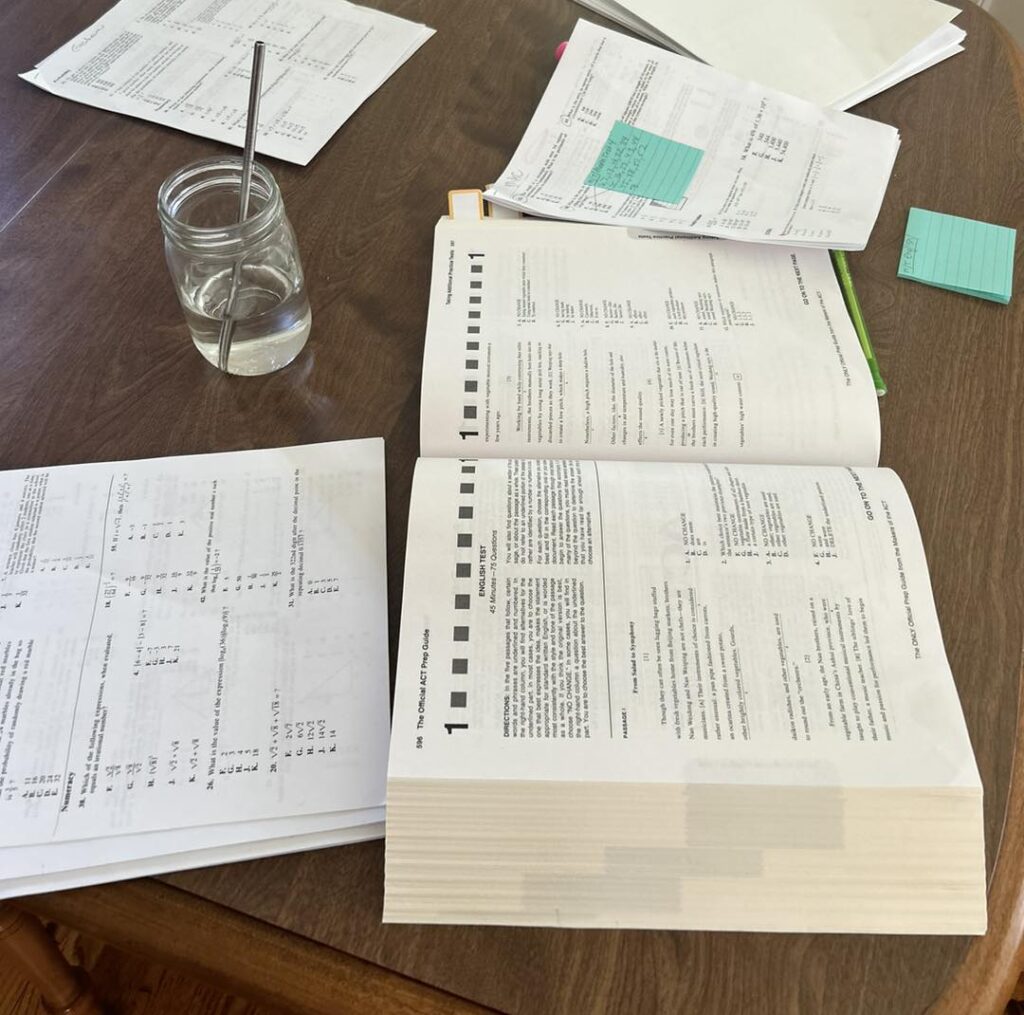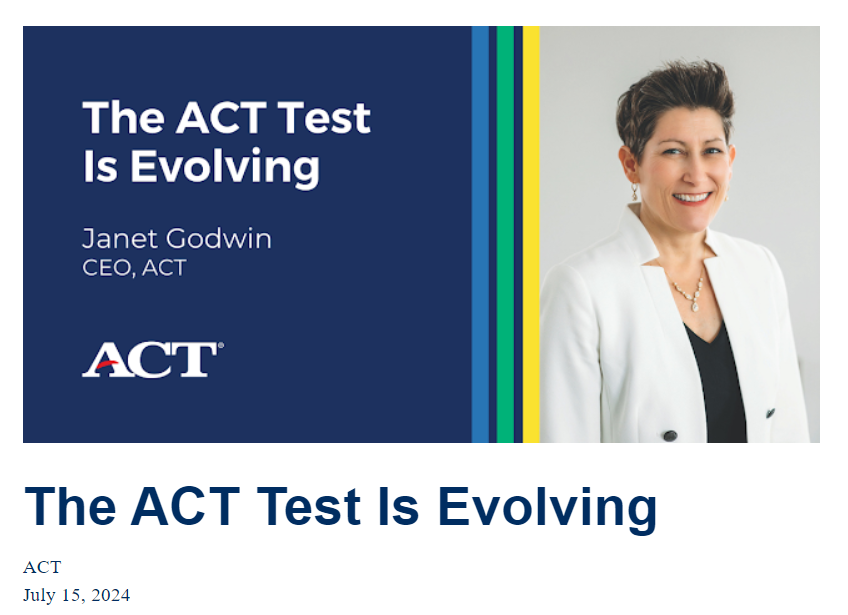Changes are coming to the ACT test in 2025 and here is what I learned.

I read over the changes coming to the ACT for spring of 2025 and BECAUSE there’s a lot to digest, I am including a bulleted list for parents and educators.
All of the following information only applies to students who will be taking the test in spring 2025 forward. Read below for specifics.
- The changes will take place for NATIONAL TESTING starting spring 2025 (April….reported here). I understand this to be for the online versions, with paper testing also changing in fall 2025.
- The changes will continue to roll out for school-day testing in spring 2026.
- The science section will be optional.
- English, Mathematics, Reading sections will still be mandatory sections on the test.
- Students will be able to register for the ACT (E,M,R), ACT + Writing (E,M,R+W), ACT + Science (E,M,R+S), or ACT + Writing + Science (All subjects).
- Though they are reducing the required subjects from to 3 from 4, the composite score will still be out of 36 (averaging E,M,R).
- Students will still be able to (eventually) choose between online testing and paper/pencil testing. Note that these major changes to the ACT initially roll out to online versions followed by rolling out to paper/pencil.
- The test is going to be shorter.
- 44 fewer questions on E,M,R combined increasing the amount of time per question because there is no change in time per section.
- Shorter passages on both Reading and English.
- The test will take about 2 hrs to complete, instead of about 3hrs.
- There are no apparent substantial changes to the mathematics portion of the test, with the exception of fewer questions.
- The cost of registration will decrease. (Source)
My thoughts………..
First, I feel that the change is a positive one. Students who sit with me for ACT prep tend to struggle with how to prepare for the science section. As it stands, the science section does not rely on the content of science students learn in their high school courses. Instead, the science section is comprised of what I would call analytical and interpretive exercises related to science concepts. Further, the science section has a ton of analysis to do in a very short amount of time. I have never felt like the science section is an appropriate measure of science ability for high school students but rather a measure of their analytical aptitude in a short period of time.
Second, the ACT test remains a normalized test with conversions from raw scores to scale scores. I encourage people to refrain from saying “the ACT is changing and it’s going to be easier.” Test developers will still convert raw to scale and the scale remains 36. They will have to develop a scale conversion that is comparable to scales of the past so that a 30 in 2027 is comparable to a 30 today. However, I think it is safer to say that these changes may make it ‘easier’ for students whose primary barrier to achieving a higher score is time pressure and may allow those students to better showcase their academic abilities through the ACT. Another way test developers might equalize the scores from before the change with those after the change is to make questions a little more difficult because there are fewer of them. Again, these are my thoughts, not facts.
Click for their video about the changes.
